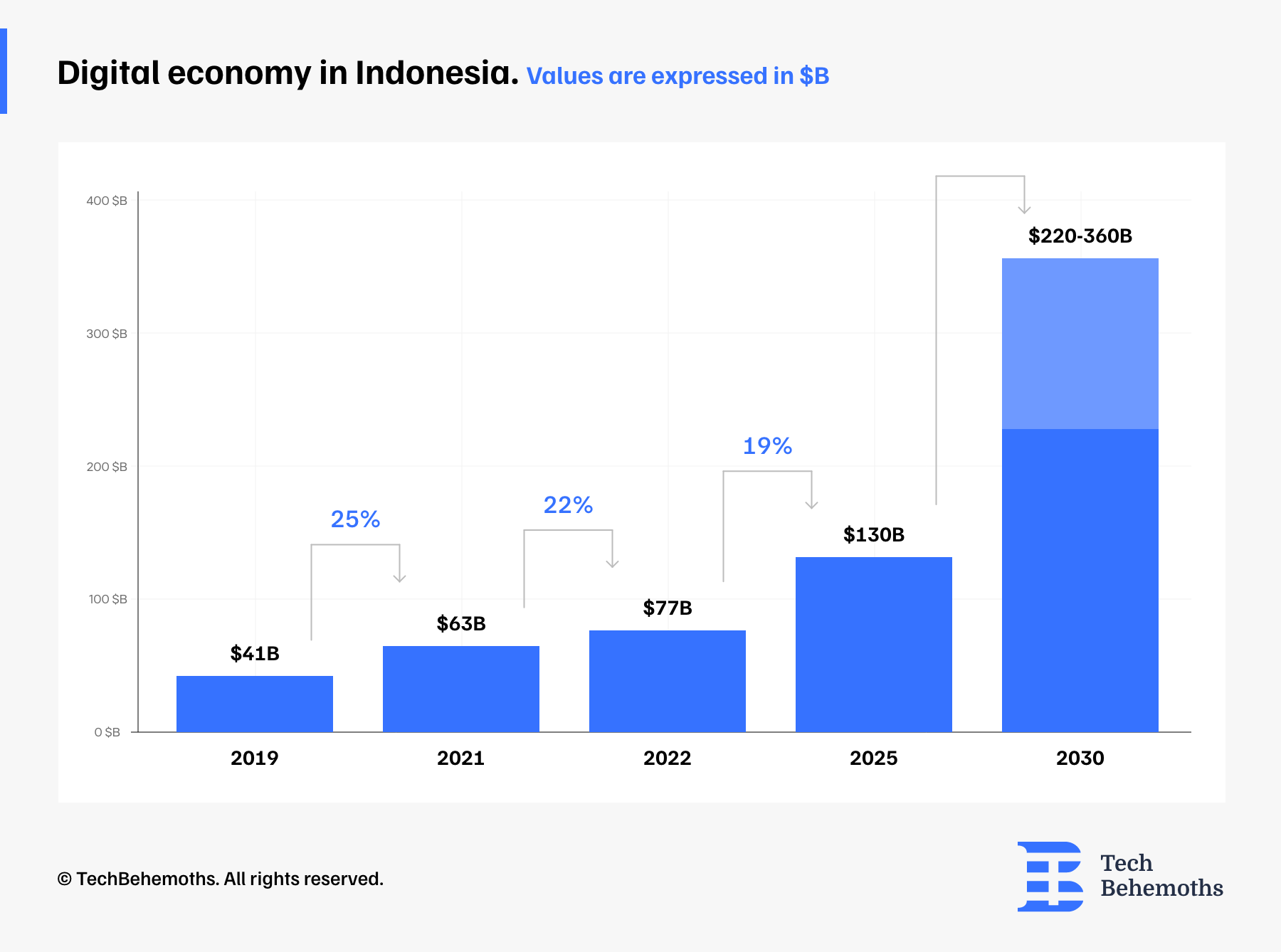Tech Winter and Its Impacts on Indonesia’s Tech Industry

The term tech winter might be something you've only heard in passing, but for Indonesia's tech scene, it basically means things have gone from exciting and busy to a bit slower and more careful.
Not too long ago, startups were popping up everywhere, and investors were throwing money at promising ideas. But now, things have slowed down. Money's not flowing as freely, and there's this feeling of uncertainty in the air.
Still, even in this chilly phase, there's a chance to step back, rethink strategies, and find ways to keep moving forward. We’re about to dive into tech winter and its impacts on Indonesia’s tech industry.
What Is the Tech Winter and Why Did It Happen?
First thing first. Let’s brush up on the basics and make sure that we’re all on the same page. What exactly is the tech winter?
Although there’s no official definition for it, the idea of "tech winter" borrows from concepts like the "nuclear winter,” an environmental climate theory developed in the 1970s. In this nuclear winter theory, the notion is that a catastrophic event (in this case, nuclear war) would cause a significant and prolonged decrease in global temperatures and societal collapse.
Similarly, just as we talk about "AI winter" or "biotech winter," "tech winter" refers to a period in the tech industry when things slow down after a period of rapid growth. This slowdown can mean fewer new startups launching, less investment money being thrown around, and overall less excitement and buzz in the air. While the causes and consequences are vastly different, all these “winter” terms imply a period of downturn and reduced activity within their respective domains.
Now, the follow-up question would be, “...and what causes it?”
There are several factors that can contribute to the onset of a tech winter. But one major factor is a shift in investor sentiment. When investors become more cautious or risk-averse, they may hold back on funding new ventures. This, then, leads to a decrease in startup activity.
Economic downturns or global uncertainties (like COVID-19) can also play a role as businesses tighten their budgets and consumers become more conservative with their spending.
Not to mention that saturation in certain markets or industries can lead to increased competition and reduced opportunities for growth– this also contributes to the slowdown.
So, in essence, a tech winter can be triggered by a combination of economic, market, and investor-related factors that dampen the once-booming tech landscape.
What Is Tech Winter Like in Indonesia?
In Indonesia, the tech winter manifests similarly to other regions, with a slowdown in startup activity and reduced investment flow.
However, what sets Indonesia apart is its rapidly evolving tech ecosystem, which is still in its nascent stages compared to more established tech hubs. Consequently, the impact of a tech winter may be felt more acutely as the ecosystem is still establishing its foundations.
Indonesia's digital economy reached $77 billion or approximately Rp1,141.49 trillion in 2022, showing a 22% increase compared to 2021, when it was valued at $63 billion or Rp933.91 trillion.
Projections suggest that this growth will persist, with expectations of reaching $30 billion in 2025 and potentially ranging from $220 billion to $360 billion by 2030.

We can see that Indonesia’s digital economy has grown substantially in the past five years, notably from 2019 to 2021. However, this growth encountered obstacles due to a stagnation in investor investments during 2021-2022.
Indonesia also boasts a dynamic and digitally connected population that comprises a significant proportion of young, tech-savvy individuals. This demographic dividend presents both opportunities and challenges during a tech winter.
On one hand, it fuels innovation and entrepreneurial spirit, driving the creation of new tech solutions despite the downturn. On the other hand, it also intensifies competition and heightens expectations– which leads to greater pressure on startups to differentiate themselves and attract investment.
The Impacts of Tech Winter on Indonesia’s Tech Industry
The tech winter in Indonesia starts to have a massive impact, especially in 2021-2022. But here we are in 2024, and the storm hasn’t completely gone. Its influence is still being keenly felt in the country's tech landscape.
Startup entrepreneurs are still expected to be wiser in making business decisions, considering that investors will be more selective when allocating financing. Here are some impacts of tech winter on Indonesia, especially in its economic and digital sectors.
A Wave of Mass Layoffs Within the Tech Sector
One significant consequence is the potential for layoffs and job losses within the tech sector. As startups face funding constraints and reduced growth opportunities, they may be forced to downsize their operations or even shut down entirely. This is what ends up in layoffs for many employees.
While some layoffs are strategic, others are widespread, contributing to the ongoing challenges in the tech workforce. From January to November 2022, almost 1 million (919,071) people lost their jobs due to layoffs in Indonesia.
The ripple effects of mass layoffs extend beyond the employees directly impacted. Suppliers, service providers, and other businesses that rely on the tech sector for revenue also experience downturns as demand for their products and services diminishes.
This creates a domino effect that amplifies the economic impact of layoffs and potentially leads to further job losses in related industries.
A Decrease in Startup Activity
A decrease in startup launches means fewer new businesses entering the market, which can lead to a stagnation of innovation and a lack of diversity in the tech sector. In Indonesia, startups are at the forefront of developing new ideas, technologies, and business models, driving competition and pushing existing companies to innovate.
Therefore, a slowdown in startup activity can stifle the overall pace of technological advancement and economic growth. Moreover, startups also play a crucial role in job creation and employment generation, particularly for young, skilled workers.
Providing opportunities for entrepreneurship and innovation allows startups to contribute to the expansion of Indonesia's labor market and the development of a dynamic, knowledge-based economy.
A slowdown in startup activity can therefore lead to fewer job opportunities for aspiring entrepreneurs and skilled professionals.
A Slowdown in the Pace of Innovation
As mentioned before, startups are the engines of innovation that constantly push boundaries and introduce disruptive technologies that drive progress and Indonesia’s economic growth. Whether it’s fintech companies, voice-over agencies, or even agricultural tech startups, they all contribute to the ecosystem of innovation in Indonesia.
When startups face challenges, such as funding constraints or market saturation, their ability to innovate is hampered. This results in a slowdown in the introduction of new products, services, and business models. All of that limits the transformative potential of technology to address societal needs and drive productivity gains.
A Wavering Confidence of Investors
Tech winter also affects investor confidence and overall sentiment towards the Indonesian tech ecosystem. If investors perceive Indonesia's tech industry as less attractive or riskier due to the challenges posed by the tech winter, they redirect their capital to other markets or asset classes. This could further exacerbate funding constraints for startups and stifle the growth of the tech sector.
So, What Now?
Tech winter has surely presented Indonesia's tech industry with its fair share of challenges. The government is focusing on fostering resilience and adaptability within the startup community. This entails equipping entrepreneurs with the tools, resources, and support they need to weather economic downturns and emerge stronger on the other side.
Initiatives such as mentorship programs, access to finance, and capacity-building workshops can help startups build resilience to withstand the shocks of the market and pivot when necessary to capitalize on emerging opportunities.
For example, The Ministry of Communications and Informatics (Kemenkominfo) launched Startup Studio Indonesia (SSI) to help startups grow and gain market access. The support provided ranges from training and coaching to in-kind tech developers aimed at maximizing their technology and business analysts to assist them in analyzing their commercial data.
Not only that, but there are also Sekolah Beta, 1000 Digital Startups National Movements, and HUB.ID. Even more and more independent and private sectors also offer incubator programs, co-working spaces, and networking events to foster entrepreneurship and innovation within the startup ecosystem.
All of these IT solutions focus on developing digital talent to improve the resilience of startups in facing various business development dynamics, including the tech winter.